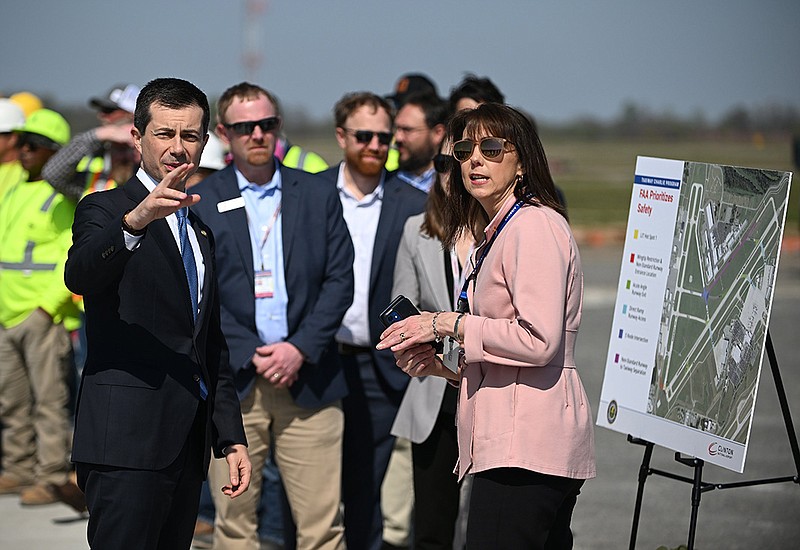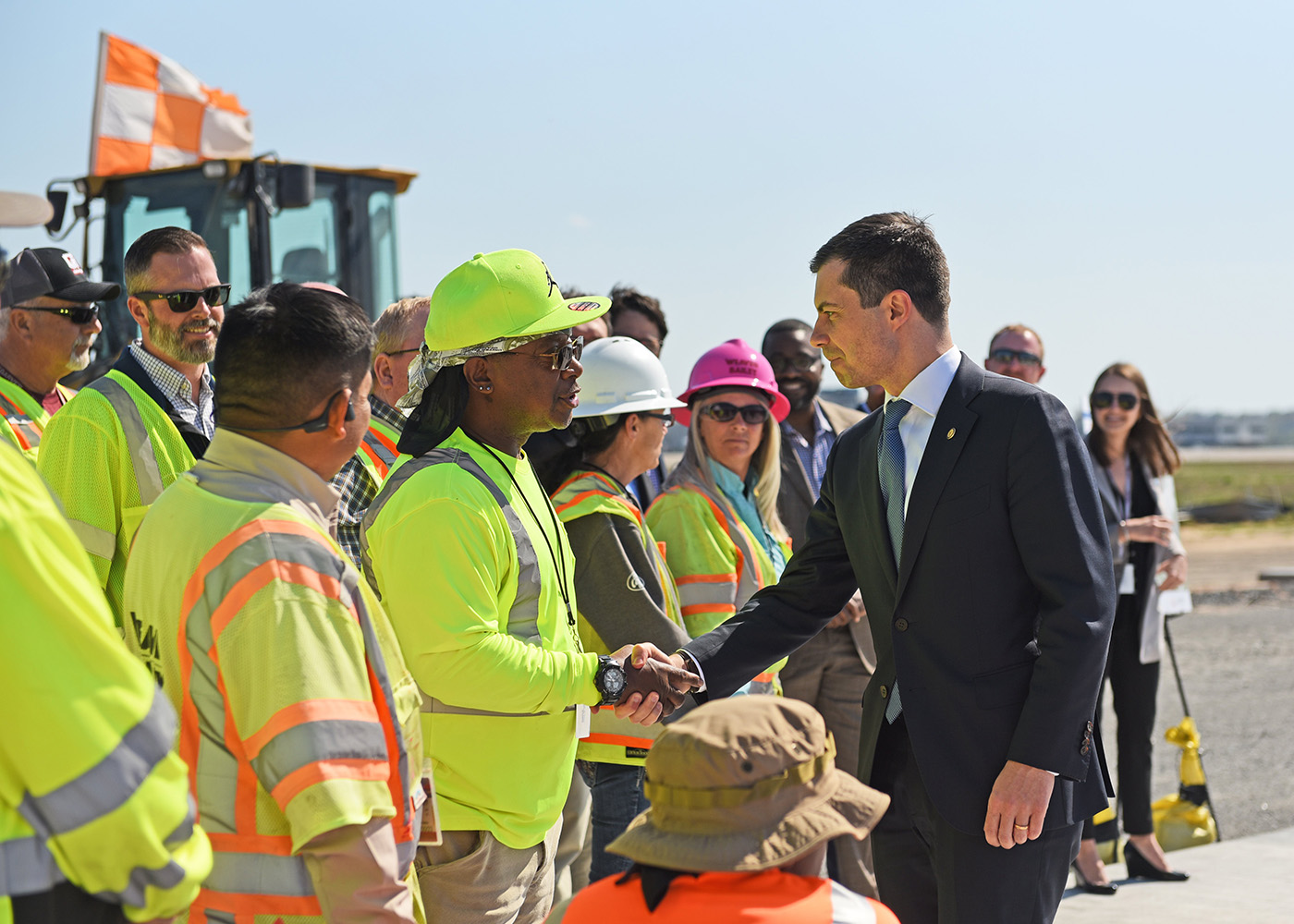U.S. Secretary of Transportation Pete Buttigieg visited Little Rock's Bill and Hillary Clinton National Airport/Adams Field on Wednesday afternoon as part of a four-state tour highlighting aviation safety initiatives.
At a site on the airfield, Buttigieg greeted officials near construction equipment associated with the multiphase Taxiway Charlie project.
The airfield reconfiguration involving the relocation and extension of Taxiway Charlie is meant to mitigate risks at the state's largest airport by eliminating angled taxiway-runway intersections along with a five-way intersection, among other changes. Taxiway Charlie is located near Runway 4L-22R, one of the airport's two main commercial runways.
The full project is estimated to cost more than $61 million. It is backed by $31 million in federal funding awarded to date.
A recent spate of close calls between aircraft at airports nationwide prompted a Federal Aviation Administration safety summit and a subsequent March 22 safety alert to the aviation community that cited six "serious runway incursions" since January.
At an airfield news conference in Little Rock, Buttigieg said Americans must not take for granted the safety of air travel, which he described as the result of decades of hard work by people across the aviation sector as well as ordinary citizens.
"Just as we set out to eliminate commercial plane crashes years ago, today we have to eliminate serious close calls as well," Buttigieg said. "While they remain extremely rare, it is a reality that we must confront that in recent months we've seen an increase in the number of those close calls. There are more mistakes than usual happening across the system on runways, at gates, in control towers and on flight decks."
While emphasizing the Biden administration's focus on infrastructure, Buttigieg argued that aviation safety requires making investments in people and physical infrastructure.
In addition to convening the safety summit and issuing the safety alert, Buttigieg said federal authorities have been proud to provide financial support "to reduce confusion and risk on this airfield here in Little Rock."
At one point, he suggested the increased number of close calls could be partly attributed to the "swift return to air travel, which, while good economic news, means we need to keep up on the safety side."
The visit to Little Rock by Buttigieg followed a stop at Charlotte Douglas International Airport earlier in the day. Buttigieg is scheduled to visit airports in Texas and Oklahoma today.
Little Rock Mayor Frank Scott Jr., the airport's Executive Director Bryan Malinowski and Dustin McCabe, the Federal Aviation Administration's air traffic manager for the Little Rock airport, addressed attendees prior to Buttigieg's remarks.
Scott cited Buttigieg's understanding of the importance of infrastructure gained as mayor of South Bend, Ind., and called him "one of the great surrogates" for President Joe Biden and the Biden administration's efforts on infrastructure.
The Taxiway Charlie project "will greatly improve your safety," said Malinowski, who encouraged attendees to think of the airfield as opposed to the terminal when they hear the word "airport."
Attendees at the news conference included one of Buttigieg's predecessors, former U.S. Secretary of Transportation Rodney Slater, who served from 1997 to 2001 under then-President Bill Clinton.
Buttigieg acknowledged Slater as someone "generous with his time and advice when I come to seek wisdom from somebody who has been in the role and from whom I've learned a great deal."
Asked about a federal planning grant that was recently awarded so officials can study a potential park that would sit above a portion of Interstate 30 in Little Rock, Buttigieg said a deputy administrator for federal highways has been to the city to learn more about the vision.
"I've spoken about it briefly with the mayor and we'll be speaking about it a little more today," Buttigieg said. He added that he was "pleased to be able to see that funding come to help Little Rock plan for that future."
Announced in February, the $2 million award from the U.S. Department of Transportation's Reconnecting Communities Pilot Program coincides with ongoing work to overhaul the downtown Little Rock interstate corridor.
Planning grants of the kind Little Rock has been awarded are meant to help the community align on a vision and potentially qualify in the future for construction and implementation support as well, Buttigieg said.


